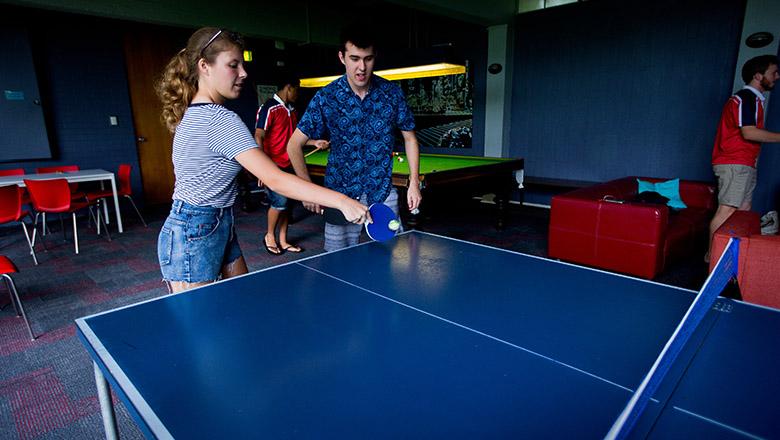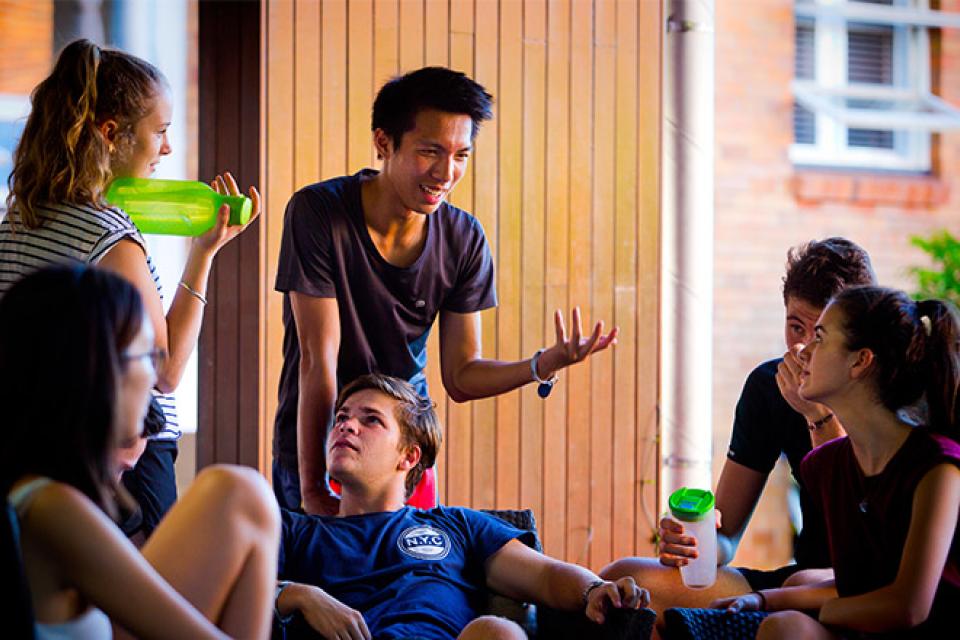Schoolies is a key celebration for many school-leavers and is highly anticipated throughout the year. It’s a chance for teens to let their hair down after exams and have some fun with their friends. While your child's chief concern may be having a good time, it’s understandable that yours is considering how to be safe at schoolies.
You may have reservations about waving your child off to schoolies – an event frequently associated with alcohol, partying and risk-taking. But your teen’s schoolies experience doesn’t have to be a media horror story.
There are strategies you can put in place, and conversations you can have, that will equip your teen for a fun and safe schoolies. Speaking with your child about how to stay safe at schoolies is important not only for their welfare, but also for your peace of mind.
Below are a few essential topics to cover. Remember to be supportive and reassuring. Underneath all the excitement of holidaying with friends, your teen is likely to have some trepidations about it too.
Is your teen still on the fence about the type of post Year 12 celebrations they want to participate in? There are options other than the typical schoolies experience. Share our article exploring whether schoolies is worth it with your teen.
Open communication
Establishing open lines of communication is a great place to start. Always reassure your child they can call you any time, for any reason – if they’re homesick (though they may never admit this), if they need help or there’s an emergency (though 000 should always be the first point of call in an emergency situation). Reiterate that you will not get mad at them – their safety is your number one priority, and they need to know your first reaction won’t be to judge or chastise.
If your teen doesn’t feel comfortable talking with you about subjects such as sex, alcohol or drugs, tee up someone they can contact about these things if issues arise. This might be a family friend or adult cousin – someone you both trust. It’s important for your child to know they always have an adult they can talk to or turn to for help.
Setting clear expectations about how often your teen should check in with you can help put everyone's mind at ease. You may want to ask them to call you every hour, on the hour. But try to implement sensible timeframes – it could be as simple as a quick message once a day. It may help to emphasise that sticking to this agreement will mean you’re less likely to call them at an inopportune moment and embarrass them in front of their friends.
Pro tip: when your teen books accommodation for schoolies, make sure you read through the terms and conditions with them. Many hotels have additional requirements for schoolies guests, and you don’t want to be caught off guard by additional fees or rules.
Alcohol and drugs
When talking to your child about how to stay safe at schoolies, having a candid conversation about alcohol and drugs is a good idea, as these two substances are bound to be present (whether your teen is partaking or not). Be sure to refresh their knowledge on the laws surrounding alcohol and drug use, especially for those who are underage.
If your teen is under 18 and going to schoolies, encourage them to organise fun activities with other friends who are also underage. Laser tag, theme parks, escape rooms and beach days are all great ways to have fun without alcohol.

If your child is 18 or over and keen to drink, remind them of the following essential tips to stay safe and drink responsibly:
- stay hydrated and drink water between alcoholic beverages
- eat a substantial meal before you begin drinking
- avoid mixing types of drinks
- never leave your drink unattended and be aware of drink spiking
- always stay with a trusted friend – never go off alone.
If your teen is taking medication, remind them of the risks associated with mixing alcohol and drugs with their prescription medication. Have an honest conversation about what they want to do at schoolies and how this may affect their physical and mental health. Being up-front about this will allow you to put realistic strategies in place to avoid unnecessary risks.
If your child is going to a popular schoolies location such as the Gold Coast, make sure they’re aware of organisations such as Safer Schoolies and Red Frogs, who are there to ensure everyone has a great time, while staying safe.
Peer pressure
Peer pressure can rear its ugly head in many different situations. Your child may experience pressure from their peers to drink, have sex, take drugs or partake in other risky activities. It’s important to reassure your teen that they have the right to say no and real friends will respect their decision to do so.
If your child is still developing their self-confidence, speak to them about ways they can remove themselves from unhealthy or uncomfortable situations.
Sex and consent
A big part of a discussion on how to be safe at schoolies revolves around sex – for those who are sexually active and those who are not. Unfortunately, it can also be one of the most uncomfortable topics to talk about. If your teen is unwilling to have this type of conversation with you, suggest they speak with a sexual health adviser before heading off to schoolies so they have a chance to voice any questions or concerns they may have. It's important for them to know about the risk of sexually transmitted infections (STIs) and unwanted pregnancies, and how to avoid these.
Another key topic surrounding sex is consent. While your teen may have spoken about consent in sexual health classes at school, don’t assume they know what it is. ReachOut and the Australian Government have some great resources to help you navigate this discussion:
- ReachOut's 'How to teach your teenager about consent' article.
- Australian Government's Consent Conversation Guides.
Try to be as open and supportive of this conversation as possible. If they can see that you are open to conversations about consent, they’ll be more likely to feel comfortable initiating this conversation with others.

Emergencies
Before your teen leaves for schoolies, make sure the Medical ID on their smartphone is up-to-date and accessible from their lock screen. This can help ambulance officers and medical professionals easily find vital information in case of an emergency, including your contact details.
It’s a good idea to save the names and phone numbers of the parents of the close friends your child will be travelling with and keep the contact details of the accommodation handy.
Just as you’ve told your child to call you any time without being fearful of the repercussions of their behaviour, ensure they know the same applies for contacting emergency services. Ambulance officers are concerned first and foremost with the welfare of the patient. Being scared of getting in trouble for drinking or taking drugs should never take precedence over someone’s safety. Reiterate that triple zero should always be the first point of contact in case of an emergency and to be up-front with health professionals about drug and alcohol intake.
While all the topics we’ve covered here are serious, and some present worst-case scenarios, it’s important to remember that schoolies is meant to be a celebration and a chance for your teen to spread their wings a little. After you’ve had these discussions with your child, show them that you’re excited for them too! Celebrating safely with their friends is a great reward for all the hard work they've put into their schooling.
Even if you spend the entire week worrying, just know that there are plenty of other parents in exactly the same boat. Trust that you’ve done all you can to prepare your teen for schoolies, and now it’s over to them to make the right decisions as young adults. If anything goes awry, you’re only a phone call away.
Looking to prepare you teen for uni life once they return from schoolies? Find out how to help your teen transition from high school to uni.





